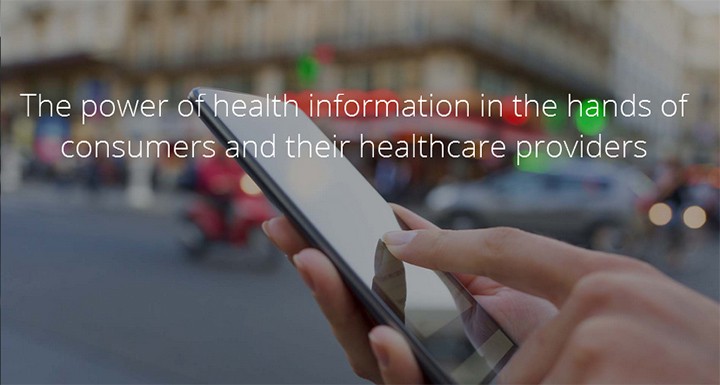By Bettina Experton, M.D., M.P.H.
President & CEO, Humetrix
Around the world, individuals are calling for changes in governance with new leaders committed to socio-economic results and more transparency for all citizens. This call for change is driven by the economic challenges individuals face, among them, the personal toll of the unsustainable rise of healthcare costs.
Uncontrolled healthcare costs are contributing to global political shifts. See the UK, where Brexit promoters spoke of re-directing some EU taxes towards a financially strained NHS; or the U.S., where the repeal of Obamacare became a popular election matter, for just two examples.
…healthcare reforms focused on cost containment have addressed providers and payors almost exclusively, with the patient-citizen considered, at best, a policy “after thought.”
In the U.S., we remain the world champion when it comes to healthcare inefficiencies, with health spending now reaching $3 trillion, or nearly 18 percent of GDP. Sadly, this outrageous spending doesn’t translate to improved results. Our country is failing its citizens on the most significant health outcome: for the first time in history, life expectancy for many Americans is actually declining.
This decrease for middle-aged white Americans is mostly the consequence of unhealthy lifestyles tied to the recent economic downturn, unemployment, and related health issues affecting some of us. This is a public health emergency that calls for economic intervention and a serious look at healthcare costs.
Whether in Europe or in the U.S., healthcare reforms focused on cost containment have addressed providers and payors almost exclusively, with the patient-citizen considered at best a policy “after thought.” The results of these reforms, which include, managed care, health system consolidation, or large taxpayer-funded IT investments, have been minimal. In the U.S. for example, the rise of health insurance premiums, higher deductible plans, and restricted networks are now penalizing individuals, employees, and their employers.
We need to reset policies with a “power to the people” mindset, fostering innovation and economic incentives that target all stakeholders, starting with consumers. Not only because consumers want and deserve more control over their healthcare, but because when individuals have such control and access to their health information and better transparency, health expenditures, and outcomes all improve.
How do we achieve this at scale? Knowledge-based, actionable information that allows us all to better manage our own healthcare needs to be placed in individuals’ hands and in real time. Thanks to the power and ubiquity of mobile technology, our mobile devices can become the means to life- and cost-saving information. A move to a mobile-first approach to Health IT can be delivered at a population scale to drive systemic changes and benefit both the health of individuals and that our economies.
The Obama Administration understood the importance of giving citizens access to their health information. In the Fall of 2010, President Obama launched the Blue Button initiative to give Americans in federal health programs easy access to their health records. Turning to industry to innovate around this initiative, my company developed the iBlueButton mobile app, a two-time HHS Industry Innovation competition winner. Thousands of Veterans and Medicare covered Americans rely on this app to better manage their healthcare and ensure their personal safety by preventing medical errors such as adverse drug reactions.
Let’s not lag behind the rest of the world in adopting mobile technology for our healthcare, when it has otherwise impacted every facet of our lives.
Millions more Americans could, however, benefit from using iBlueButton and other innovative mobile technologies, if it was not for entrenched government procurement processes and a bias towards large, costly health IT systems for the sole use of providers, rather than focusing on patient needs and the existing, decentralized mobile, consumer controlled infrastructure. To date, more than $35 billion of HITECH funds have been spent on this provider infrastructure, which has made almost no progress in putting up to-date health records in the hands of patients and their doctors.

In Europe, Blue Button programs are now being implemented nationwide in the UK and France, but this time, with a mobile-first approach. Health Secretary Jeremy Hunt announced that all British citizens will have a mobile Blue Button by mid-2017, emphasizing also that they didn’t have to reinvent already proven technology developed in the U.S. I had the opportunity to present to the French Parliament the U.S. Blue Button program and how the new French Blue Button initiative could be executed to give French citizens a mobile application to access their health records. Plans are to deploy these mobile health records in France in the Spring of 2017.
Let’s not lag behind the rest of the world in adopting mobile technology for our healthcare, when it has otherwise impacted every facet of our lives. We access banking, communicate with each other, get our news, and research information from the palms of our hands.
As a start, let’s ensure that the new HIPAA rule to give Americans a legal right to electronically access their health records, and which is part of Obamacare, is preserved. However, like the Blue Button initiative, the new HIPAA rule needs to be “operationalized” with investment in mobile technology, starting with federal programs, and be legally enforced — which hasn’t been a priority to-date.
Hopefully, change in Washington will also mean starting fresh with a 21st century “Go Mobile” mindset. By empowering all Americans to better manage their own health data, we can improve health and economic outcomes. Let’s also continue to lead the world in technology innovation, so that we can all Thrive Globally!
Originally published at medium.com


